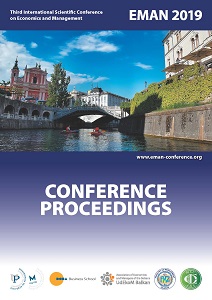Author(s): Aleksandra Lozanoska,Elizabeta Djambaska,Vladimir Petkovski / Language(s): English
Publication Year: 0
The labour market is facing different forms of inequality and discrimination against workers on the basis of gender, age and health. Gender gaps are one of the most pressing challenges. Globally, women are substantially less likely than men to participate on the labour market and to find jobs. Their access to quality employment opportunities is limited. Many researches have shown that there is a significant difference between the genders, in terms of the wage levels, occupation, working hours, economic status, duration of the unemployment etc. The research hypothesis of the paper is that Republic of Macedonia has gender inequality on its labour market, seen through different position of men and women regarding their economic activity, employment and unemployment. The aim of the paper is to identify the level of gender inequality and the differences between men and women on the Macedonian labour market. The paper consists of two segments. The first is focused on the theoretical aspects of the gender inequality, as well as on the measures and indicators which can determine the scale of gender inequality. In the second part, the situation on the Macedonian labour market regarding the position and differences between men and women is observed. For that purpose, the economic activity, employment and unemployment of men and women (by age, educational attainment, economic status, working hours, sectors of activity, occupations, wages and other) is analyzed. The results of the analysis show that the position of women was and remains worse than of the men. It is seen in their lower participation in the economic activity and employment in the country, in the higher unemployment rates, longer unemployment, lower wages, in an increase of the average time to find work, in the proportion of women in traditionally female occupations etc. The gender inequality demands more attention in order to improve existing legislation and to implement labour market policies which will ensure higher participation of women on the labour market. Therefore, the paper, also, notes some recommendations to overcome the unfavorable situation of women on the Macedonian labour market. The study of the gender inequality on the Macedonian labour market is made for the last decade, using the available data from the State Statistical office of the Republic of Macedonia. For the purpose of the research, reports, data and statistical analyses on gender inequality from different international institutions (Eurostat, World Bank, World Economic Forum and International Labour Organization) are also used. Concerning the methodology, the study is based on the qualitative methods such as: analysis of literature and documents and deductive reasoning, as well as on the quantitative method of descriptive statistics.
More...

